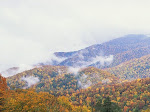Henry S. Cole and Associates, Inc.
- Henry S. Cole, Ph.D.
- Dr. Cole is an environmental scientist with extensive experience regarding toxic chemicals in the environment. Henry S. Cole & Associates provides scientific support for communities, environmental organizations and government agencies. Dr. Cole is also a writer on the relationship between environment and economics.
Friday, November 13, 2009
Thursday, November 12, 2009
How to Fix the Economy: Nature Knows Best© Henry S. Cole, Ph.D.Copyright

Too Big to Fail? American chestnuts once towered over the Appalachian forests. Then in the early 1900s blight, accidentally imported on an Asian variety, devastated the American giants. As a youngster hiking in the Kittatinny Mountains of New Jersey, I saw their ghosts, huge gray-white trunks. The forest, however, did not collapse; other tree species sprang up to use newly available sunlight, water and nutrients. Nature’s biodiversity ensured that even the great chestnuts were not "too big to fail."
Arguably, ecosystems such as forests, prairies, and coral reefs represent the most successful, enduring economic systems on earth. A pound of forest soil contains thousands of bacterial species but also fungi, worms, beetles – gainfully employed, competitive, yet mutually contributing to the forest’s overall health. Ecosystems have no credit card debt, no inflation, no federal deficits and no bailouts. Despite numerous cataclysms – ice ages and asteroid collisions life has evolved, adapted and thrived for 3.8 billion years.
Rather than learning from nature we are assailing it ferociously – depleting fisheries, destroying forests, and uprooting traditional societies whose economies are closely aligned with nature. We are changing climate in ways that will create future displacements and economic havoc.
Resilience: Ecosystems (those escaping human onslaught) are remarkably resilient; they absorb and recover from shocks like droughts and fires. The enormous variety of life forms and their genetic diversity increases the odds that the system as a whole will survive disturbances and adapt to changes.
Subscribe to:
Comments (Atom)








